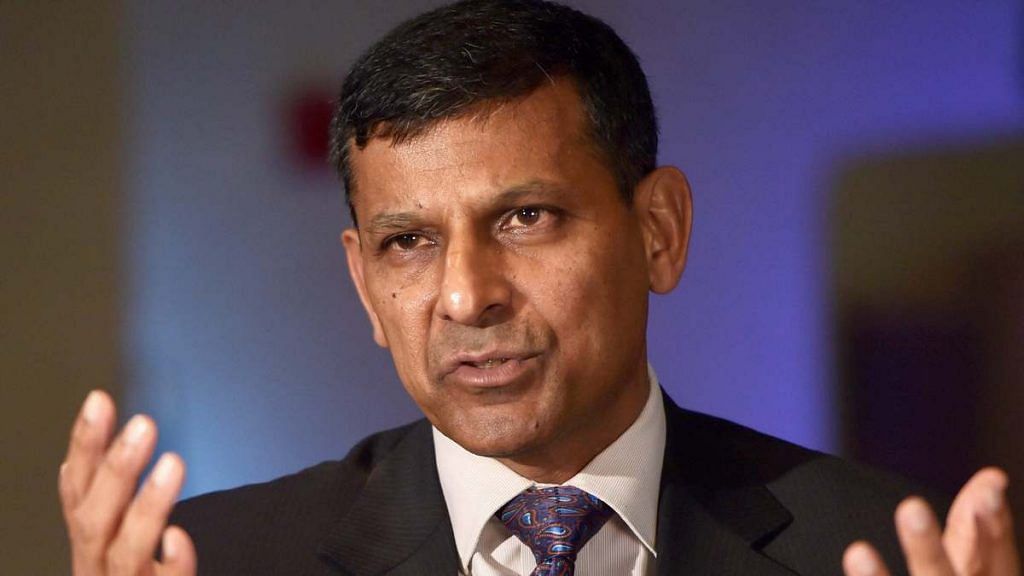New Delhi: Fears over the consequences of monetisation should not be a constraint for the Narendra Modi government to spend what it needs to protect the health of the economy, former Reserve Bank of India (RBI) governor Raghuram Rajan has said.
In a post on social media website LinkedIn Thursday, Rajan wrote, “Should “monetization” be a constraint on government spending today? No, the government should be concerned about protecting the health of the economy and should spend what is needed. Obviously, it should try and cut back unneeded spending, and prioritize.”
Monetisation of deficit, or the RBI directly buying government debt, has been debated over the past few weeks as one of the options for the Modi government to finance its fiscal deficit.
Economists have suggested this option — of RBI printing money — as the Covid-19 pandemic has caused a massive rise in expenditures and a contraction in revenues. The subsequent nearly two-month lockdown has adversely hit both central and state government finances, leaving little option for the governments but to borrow from the market. However, printing money is typically accompanied by a rise in inflationary pressures.
Also read: Raghuram Rajan bats for quick reopening of economy, says India can’t support poor for long
‘Small quantities’
Raghuram Rajan, who is now the Katherine Dusak Miller Distinguished Service Professor of Finance at the University of Chicago’s Booth School, said that monetisation of deficit, if done in a measured way, “will neither be a game-changer nor a catastrophe”.
“It helps a little at the margin, but does not solve the government’s fiscal problems nor does it lead to runaway inflation. If used in the wrong way, it could however be problematic,” he said, pointing out that large-scale monetisation of deficit could be problematic.
“…the more the government issues to the RBI, the more debt the government will have to service, and the less creditworthy the debt. If the government’s debt falls in value, RBI’s balance sheet will get eroded. Once again, what is manageable in small quantities becomes problematic in excess,” said the ex-RBI chief.
Rajan pointed out that larger government spending will reignite demand, as he added that the way it is financed will not alter the inflationary consequences. However, given that the current environment is disinflationary, a rise in inflation is not a worry, he said.
“Even though the way government spending is financed should not alter its inflationary consequences, the larger government spending will directly ignite demand. In abnormal times when demand is depressed and the environment is disinflationary, this should not be a central worry,” he said.
Rajan also stressed the need for the Modi government to get its fiscal deficit and debt back in shape.
“If the fiscal deficit and the growth in government debt is deemed unsustainable, investors and rating agencies will take fright. This is where we need to put in place measures that ensure we will go back to fiscal health over the medium term — such as the debt target and the fiscal council suggested by the NK Singh Committee,” he said.
“The consolidated liabilities of the government and the central bank have to be seen as sustainable, else confidence in both money and government debt will collapse,” he added.
Also read: Provide cash to India’s poorest 60% to revive economy: Nobel laureate Abhijit Banerjee
